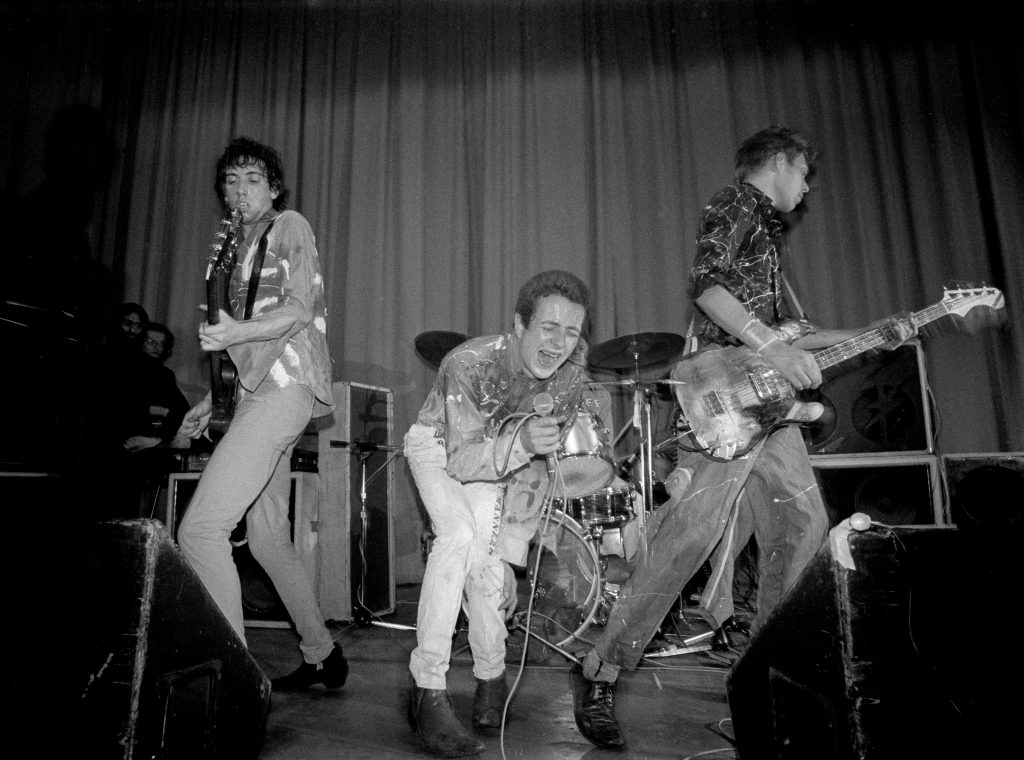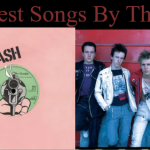“The Only Band That Matters”
The promotional tagline bestowed upon them by their record label may seem like hyperbole, but at times, they came close to scaling the lofty heights of being “The Only Band That Matters.” One of the reasons they’ve mattered is that they’ve been able to address real-world issues in fresh and innovative ways. Their music remains a vital force for positive social change.
The band played their first official gig on July 4, 1976, opening for the Sex Pistols at the Black Swan in Sheffield, England. In 1977, they released their first single, “White Riot.” The lyrics refer to the 1976 riots at Notting Hill Carnival that both Joe Strummer and Paul Simonon were involved in. The riot was in response to London’s Caribbean residents being victims of racist policing practices. The song speaks out against white passiveness, encouraging those with privilege to use it to help the marginalized.
“White Riot” also appeared on their self-titled debut, a definitive album in the development of the UK punk scene. One of the album highlights was “Career Opportunities,” a scathing critique of the limited job prospects available to the youth in 1970s Britain. The song captures the frustration of a generation facing economic hardship and a lack of meaningful employment.
Between 1978-80, the band continued to showcase why they mattered with a trio of influential and eclectic socially conscious albums (Give Em Enough Rope, London Calling, and Sandinista!). Joe Strummer lyrically established himself as an insightful social commentator while the band continued to explore a wide range of musical styles, including reggae, jazz, funk, blues, and rap. Few punk bands displayed the ambition and artistic growth that The Clash did.
In particular, their third album, London Calling, is considered not only their masterpiece, but is widely considered one of the best albums of all time. The album strikes the perfect balance of accessible and eclectic. The album was a fine showcase of everything they did well.
The band also released some notable non-album singles such as “Bankrobber” and “(White Man) In Hammersmith Palais”. “(White Man) In Hammersmith Palais” addresses various issues, such as institutionalized racism and systemic poverty. The song also addresses concerns over the radicalization of the UK (“If Adolf Hitler flew in today, they’d send a limousine anyway”).
In 1982, they released Combat Rock, the last album featuring the classic line-up of Joe Strummer, Mick Jones, Paul Simonon, and Topper Headon. The album was their most commercially successful album, spawning their two biggest hits “Rock the Casbah” and “Should I Stay or Should I Go”.
Even though the album isn’t as critically regarded as their previous four albums, it does include some of Strummer’s sharpest political critiques, including the astounding “Straight to Hell”. After the break-up of the classic line-up, Strummer continued with a revamped line-up releasing one final album in 1985, Cut the Crap.
In a recording career that lasted less than a decade, The Clash built a remarkable body of work that greatly contributed to the canon of socially conscious music. They also influenced a wide range of socially conscious artists, including Billy Bragg, U2, Bad Religion, Rage Against the Machine, and M.I.A. (who notably sampled “Straight to Hell” on “Paper Planes”).
Beyond the albums, the band mattered for a variety of other reasons. They were involved in several social causes, including Rock Against Racism. They also fought against their record company and other corporate forces to ensure that their albums, tickets, and merchandise prices were reasonably priced. They were willing to sacrifice the bottom line to uphold their ideals. It is not easy to work within a capitalistic system without compromising, and The Clash was one of the few bands to accomplish that feat. In today’s current political climate, their music matters more than ever.
For more about why the band mattered, check out 25 Protest Songs of The Clash.


